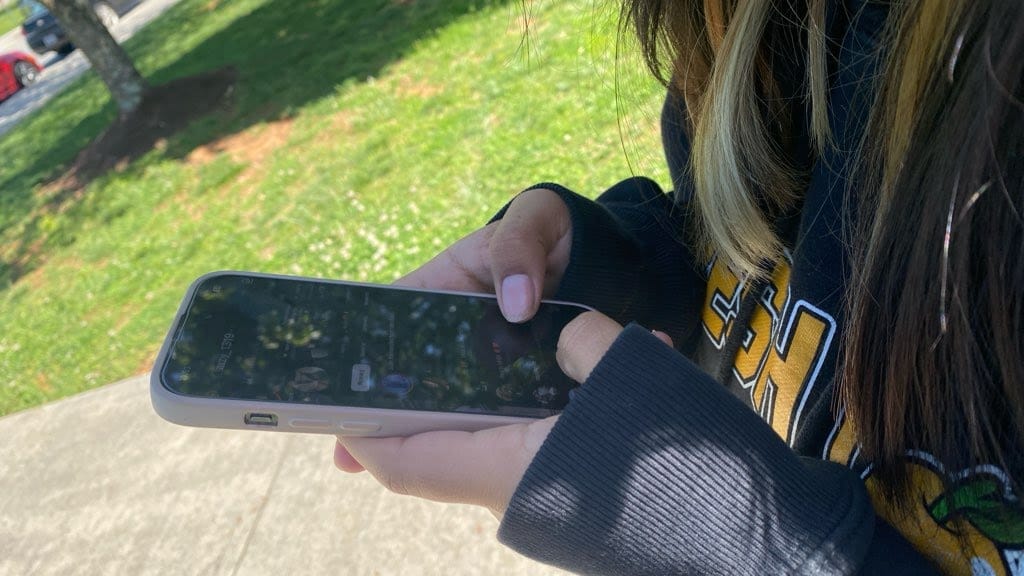As Roanoke School District Aims To Limit Cell Phones, Governor Orders Statewide Policies
A Roanoke school district group recommends different policies around cell phone use for K-8 students and high school students.

Ubiquitous student cell phone usage may soon be a thing of the past at Roanoke City Public Schools — and in classrooms across the state.
As Roanoke school board members prepared Tuesday to hear an update on recommendations to curtail phones, Gov. Glenn Youngkin’s office announced what it called the country’s first statewide effort to restrict cell phones in the classroom.
State officials are tasked before August 15 with publishing draft guidelines for school districts to adopt policies “to achieve cell phone-free education learning environments, such as pouches, dedicated cell phone ‘lockers,’ and other best practices” that communities have tried elsewhere.
“We’re proud to be ahead of the curve,” Superintendent Verletta White told school board members Tuesday evening. “We appreciate the governor’s support on this important topic because we know everyone is kind of buzzing about it today but we’ve been buzzing about this for quite some time.”
Roanoke schools in April began forming a group of parents, teachers and students to guide the school board on how to crack down on students watching videos, scrolling through social media and texting friends during class.
The working group recommends the district take different approaches for high schoolers and for students from kindergarten to the eighth grade, said Archie Freeman, the district's chief instructional and administrative officer.
Phone should be off and away for the entire school day for K-8 students, Freeman said, except in situations where a student may need a medical exception, which would require a doctor’s note.
At high schools, the group recommended students keep phones turned off and away during class, but they would be allowed in the hallways and cafeteria. It wasn’t immediately clear if a new policy would require phones to be locked away in the classroom or if students could leave their phones in their backpacks, for instance.
School board members are expected to vote on the final recommendations next month, when a school spokesperson said more policy details will be provided.
“We're not going to wait,” Freeman said. “We want to move forward now.”
Youngkin’s executive order says local school districts can adopt “age-appropriate policies and procedures” around cell phone usage ahead of a final state-imposed deadline of January 1.
“Implementing cell phone-free education in Virginia’s K-12 public schools is critical, especially given youth chronic health conditions, such as depression and anxiety, that are driven in part by extensive social media and cell phone use,” the governor’s office said in a press release.
Youngkin’s announcement will kick off six weeks of “listening sessions” hosted by the state Department of Education to gain feedback from the public.
School board members expressed appreciation for the working group’s recommendations but didn’t voice opinions on the proposed policies. Previously, board members appeared receptive to the idea of limiting the use of cell phones in class.
The group also recommended potential violations, from an initial verbal warning to confiscation and parental notification.
A school district survey from February found a slight majority of all 3,676 respondents said they would support cell phones being locked up at the beginning of class. Teachers and staff expressed the most support for restricting cell phone usage, while parents were more permissive and students largely in favor of unfettered access.
Three-quarters of all respondents admitted cell phones are a distraction to learning, and one in four educators reported they tell students to put phones away at least five times every class.

